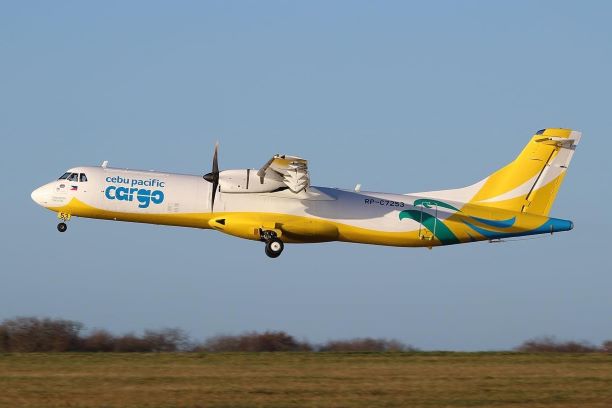-
Low-cost carrier Cebu Pacific reported a P22.2 billion net loss in 2020 as the COVID-19 pandemic wreaked havoc on the aviation industry
-
The airline in 2020 flew 78% fewer passengers than in 2019 and logged 71% less flights
-
Revenues slipped 73% from 2019, with cargo operations performing better than expected and contributing P5.4 billion or 24% of total revenues
Low-cost carrier Cebu Pacific reported a staggering P22.2 billion net loss in 2020 as the COVID-19 pandemic and travel restrictions wreaked havoc on the aviation industry.
Health and safety concerns deflated passenger confidence and led to travel restrictions, severely affecting the carrier’s operational and financial performance last year, Cebu Pacific said in a statement.
For 2020, the airline flew five million passengers, 78% lower than 2019, and logged a total of 41,804 flights, 71% less than in 2019.
Cebu Pacific’s commercial operations were grounded when the country was placed under enhanced community quarantine on March 19, 2020, and resumed on June 3, albeit gradually, when most of the Philippines was placed under general community quarantine.
Cebu Pacific in a statement said the lockdown resulted in various requirements and processes from local government units, which continue to be a challenge not only for airlines, but for the traveling public as well.
Flying about 400 flights a day pre-COVID, the carrier averaged just 47 flights a day in the third quarter last year, then 76 flights a day by December, about 20% of pre-COVID levels. This growth was primarily domestically driven, and supplemented by cargo operations, which performed better than expected, the airline noted.
Revenues reached P22.6 billion last year, down 73% from 2019. Cargo operations contributed P5.4 billion, or 24% of the total revenues, as cargo freighter and charter flights contributed to higher yield.
In addition to deploying two ATR 72-500 cargo freighter aircraft, Cebu Pacific, to be able to carry more cargo on long-range flights, began utilizing its first A330 cargo converted aircraft in November 2020.
Total operating expenses saw a 40% reduction to P43.4 billion. Fuel showed the steepest decline due to a combination of fewer flights and lower fuel cost. Other operating expenses also fell as the airline continues rigorous cost-reduction initiatives, including right-sizing its network, fleet, and manpower, while improving operational efficiencies through various digitalization efforts.
Cebu Pacific closed 2020 with an operating loss of P20.77 billion, and a negative earnings before interest, taxes, depreciation, amortization and restructuring or rent costs of P932 million.
Cebu Pacific recently completed two fundraising initiatives.
The airline’s convertible preferred shares were successfully listed on the Philippine Stock Exchange on March 29, providing Cebu Pacific with P12.5 billion in fresh capital.
And last March 5, Cebu Pacific signed a 10-year term loan facility amounting to P16 billion with a syndicate of domestic banks.
The airline said the fundraising initiatives not only provide it with cash of up to P28.5 billion, “but also represent the confidence of its shareholders and these banking institutions” in Cebu Pacific playing a vital role in the recovery of the travel industry, and the Philippine economy as a whole.
Proceeds will be used to strengthen Cebu Pacific’s balance sheet by providing liquidity to address its financial liabilities, and working capital for general corporate purposes.





